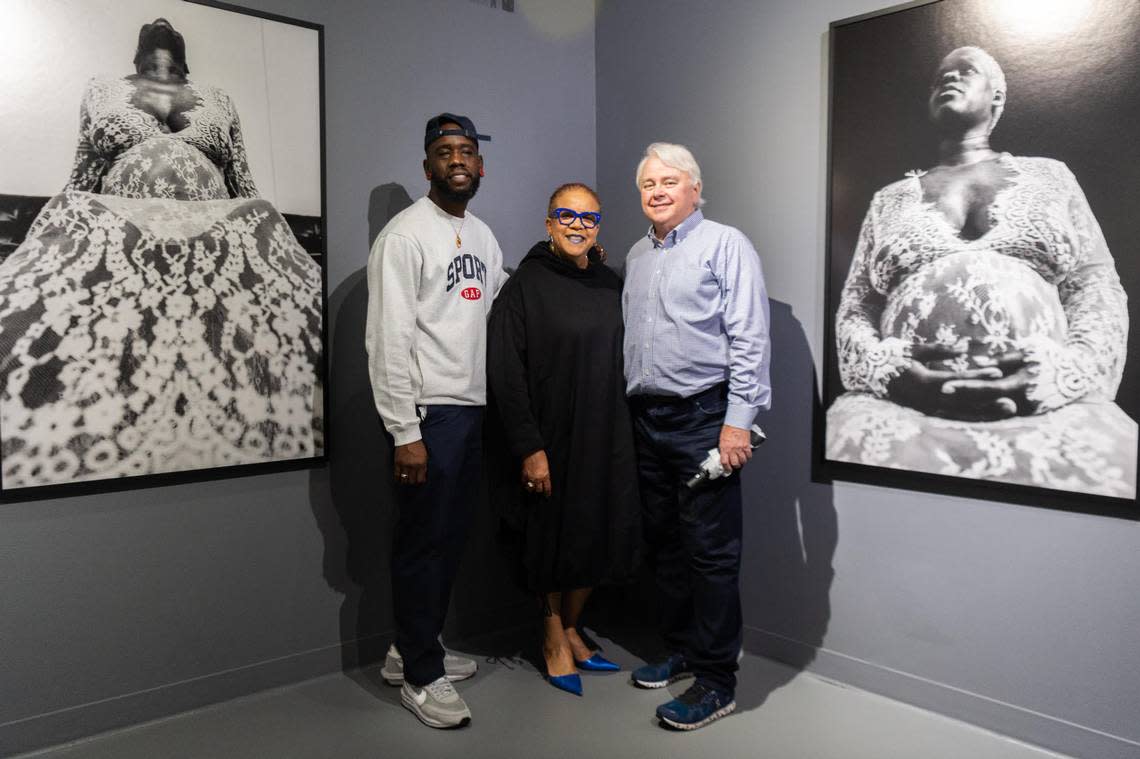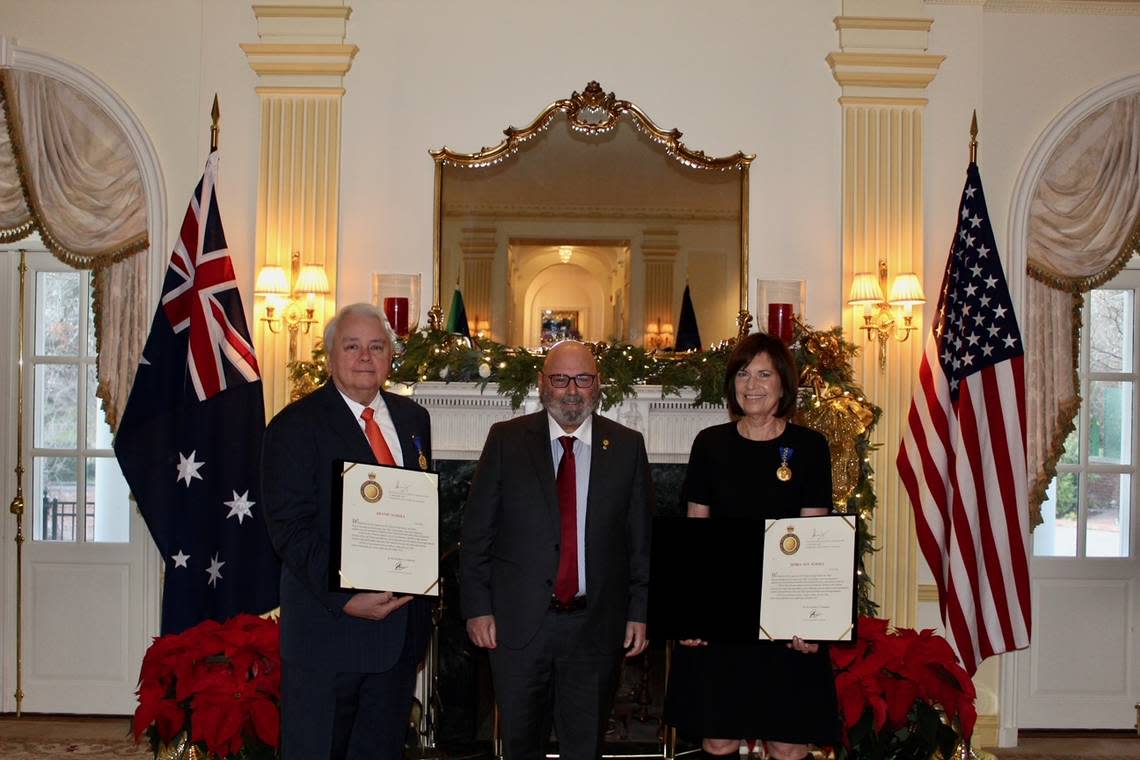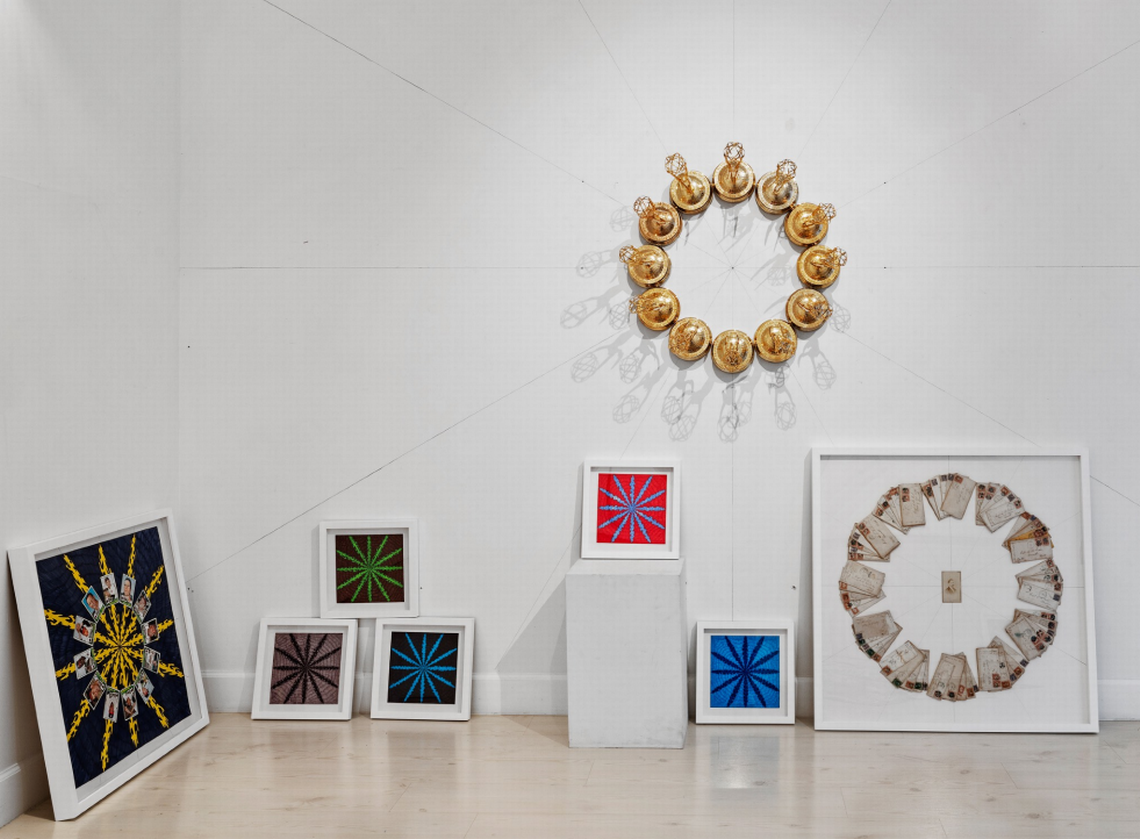‘This is gonna be my third act.’ Miami arts nonprofit leader retires to make his own art
For the last six years, arts nonprofit CEO and president Dennis Scholl has helped shape the careers of hundreds of artists through Oolite Arts’ residencies, awards and programs.
Now, he wants to focus on shaping his own artistic vision. Scholl is retiring from Oolite Arts sometime this year to pursue his filmmaking and visual arts practice full-time, the organization announced Wednesday morning. Oolite will conduct a national search to find a new CEO.
Throughout his tenure, Scholl spearheaded several initiatives and programs that boosted Oolite’s profile as a noteworthy arts support organization, like awarding millions of dollars to local artists and leading the purchase of five warehouses in Little River that will become the nonprofit’s new state-of-the-art headquarters in 2025.
“It’s always a little scary to introduce profound change into your life. It’s a little scary, but I am getting such joy out of being in the studio and making the work and such joy out of pursuing my filmmaking,” Scholl said. “I decided that this is gonna be my third act, as they say. This is how I want to spend the rest of my life.”
Before joining Oolite, Scholl served as vice president for arts at the John S. and James L. Knight Foundation from 2009 to 2015. Scholl oversaw the foundation’s national arts program, awarding grants to cultural organizations totaling close to $200 million.
KNOW MORE: Alberto Ibargüen retiring from leadership role at Knight Foundation
“When I was at Knight I worked in all the disciplines, but my undying passion is the visual arts and visual artists,” Scholl said in an interview with the Miami Herald. “I knew that I was going to get the chance to support those artists and to help them grow, grow their careers, and that has been clearly the biggest joy for me.”

At Knight, Scholl created the Knight Arts Challenge and Random Acts of Culture before he took over Oolite Arts, formerly known as ArtCenter/South Florida, in Miami Beach at its landmark building on Lincoln Road Mall. One of the nonprofit’s Lincoln Road buildings was sold for $88 million, creating an endowment for resident artists and a pool of money that would later be used for the Little River location.
“Dennis came to Oolite Arts at a critical time in our organization’s history,” the Oolite Arts Board of Directors said in a statement. “After selling our main building, which put us on firm financial footing, we needed a visionary to help us create the right programming and find the right home for Miami’s artists. He exceeded our expectations, and we’re excited about Oolite’s future.”
One of Scholl’s favorite achievements at Oolite was his proposal and launch of The Ellies, the annual visual arts awards named after the nonprofit’s founder Ellie Schneiderman, who had opened ArtCenter in 1984. Since its inception five years ago, The Ellies have awarded $2.5 million to fund local art teachers and artists’ projects, exhibitions, public artworks and films.
“So much of what we are able to do as a visual artists support organization comes from Ellie’s foresight. The artists in our community will forever benefit from her initial instinct to ‘help artists help themselves,’” Scholl told the Miami Herald when Schneiderman died in April 2020.
READ MORE: Arts pioneer Ellie Schneiderman, founder of ArtCenter/South Florida, dies at 80
Scholl was also instrumental in starting Oolite’s Cinematic Arts Program, a residency that provides $50,000 to South Florida filmmakers to create and screen their works in Miami, and the Home and Away travel residency program.
And Scholl is stepping down just before the completion of what is probably his largest accomplishment at Oolite, the construction of the nonprofit’s new $30 million headquarters in Little River. The modern Miami campus was designed by Spanish firm Barozzi Veiga and will break ground this fall.
The nonprofit’s board felt it was important to have a “signature building” that artists, staff and community members can enjoy, Scholl told the Herald. Instead of renovating an old warehouse, Oolite decided to “really go for it,” he said. The sprawling, one-story “village” design of the structure includes 21 free artist studios, rooms for art classes, a print studio, a rooftop, a theater and a gallery triple the size of the Lincoln Road location’s exhibition space.

Esther Park, the Oolite vice president of programming, admitted that she “cried a little” when she learned of Scholl’s departure. Scholl has been a mentor to Park for years, she said.
Scholl used his experience to inject mentorship, funding opportunities, accessibility and networking into Oolite’s programming for artists to benefit from, Park said. Practically everyone in Miami’s art scene — from artists to patrons to curators to gallerists — knows Scholl, she said.
“He’s kind of like the granddaddy of the art scene,” Park said. “He really has his fingerprints in a lot of what Miami is today when it comes to art and culture. I think that is something that needs to be honored and celebrated and reminded.”
Though she’s sad to see him go, Park said it’s inspiring to see Scholl take on this new chapter.
“It’s never too late to do anything,” she said. “Before he was the arts patron and now being on the other side, that doesn’t happen to a lot of people.”
From collector to artist
A seasoned arts leader and collector, Scholl lived many lives before reaching this point. Scholl came to Miami when he was 8, and became an accountant after college. After a few years, he decided to study law. On the first day of law school, which was “the most important day of my life,” Scholl met his wife, Debra.
The couple’s passion for collecting art bloomed from there, he said. Last year, the Scholls were named Members of the Order of Australia, the country’s preeminent recognition for outstanding service or achievement, for their contributions in championing indigenous Australian artists.

For years, the Scholls have been active in arts patronage and philantrophy. Scholl has sat on boards and executive committees for several major arts institutions, including the Aspen Art Museum, Museum of Contemporary Art, North Miami and the Pérez Art Museum Miami. Everything changed again when Alberto Ibargüen, the Knight Foundation CEO, brought Scholl on to lead the organization’s arts department.
“Dennis is one of the most original, independent thinkers I’ve worked with … and one of the most enjoyable,” Ibargüen said in an email to the Herald. “He was a simply brilliant leader in the arts and, from his position at Knight Foundation, was able to leverage or accelerate trends others simply didn’t see. He was a collector, a film maker and now an artist. Hold on to your hats, there’s always more coming.”
Scholl has made a name for himself as a filmmaker focused on documentaries about art and culture, like the 2014 film “Deep City: The Birth of the Miami Sound,” which traced the city’s first Black-owned record label in the early-1960s. He’s won 22 regional Emmy awards and has been featured in over 100 film festivals.
Though filmmaking has been exciting, Scholl said, he’s kept another part of his artistic journey under wraps. For the last seven years, he’s been quietly working on visual artwork in a studio, sometimes throwing out pieces he didn’t think were good enough. Scholl uses historical ephemera to create his work, like the original tabloids broadcasting Marilyn Monroe’s death, a series of Civil War-era love letters and vintage Hermès scarves.

About two years ago, he was invited to show his work in a couple of group shows in Europe. Earlier this year, he had a solo show in Berlin, which lead to even more opportunities for Scholl as an artist. Then came the hard but necessary decision to step down from Oolite in order to prioritize his art and filmmaking, he said.
Now, he’s back in the studio working on projects for upcoming shows in the United Kingdom and France and wrapping up “Naked Ambition,” an upcoming film about Bunny Yeager, a pin-up model who became a legendary pin-up photographer.
“There’s nothing more rewarding than that. If you’re an artist, you want your work to be seen,” Scholl said. “But in order to live up to those obligations and to do my best, I need to really be in the studio now.”
When it comes to Oolite, Scholl said he’s not worried. The nonprofit is in great hands.
“The most important thing is that the work will go on,” he said. “We need to get our funding out into the streets, into the hands of individual artists, and that’s not going to change here. That’s in the DNA of Oolite Arts.”
This story was produced with financial support from The Pérez Family Foundation, in partnership with Journalism Funding Partners, as part of an independent journalism fellowship program. The Miami Herald maintains full editorial control of this work.
